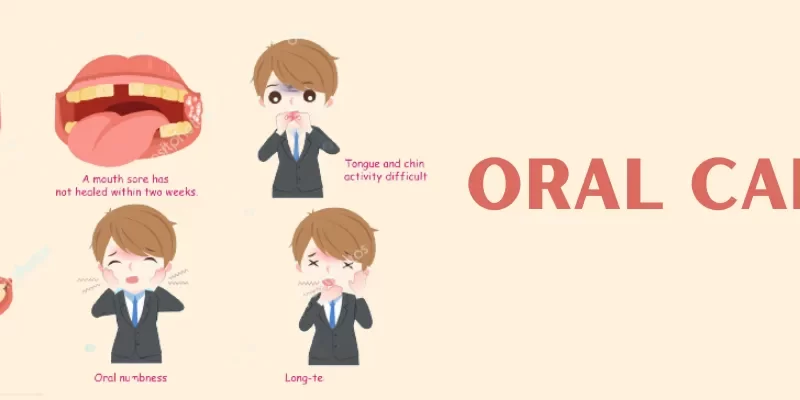Mouth and oral cancers refer to cancers of the oral cavity, lip, larynx, hypopharynx, and oropharynx. With over 377,700 reported cases in 2020 worldwide, oral cavity and lip cancers are the most prevalent.
According to the Mouth Cancer Foundation, the increased fatality rate associated with oral cancer is brought on by the fact that the disease is often discovered in its advanced stages, most frequently after it has already started spreading to the lymph nodes in the neck.
It can be a severe disease, but fortunately, it is also one of the most treatable cancers if caught early. Dr. Sandeep Nayak, a highly-accomplished cancer specialist in Bangalore, says that early detection and treatment of oral cancer are essential, but misconceptions about the condition can make this difficult.
When it comes to cancer, there are many myths and misconceptions floating around. Oral cancer is no different.
Here are 5 of the most common myths about oral cancer:
Myth 1. Only smokers get oral cancer
 While it is true that habitual use of tobacco and alcohol are the two most prevalent risk factors for oral cancer, they are not the only ones. Non-smokers and abstainers of alcohol may experience a diagnosis at some stage in life.
While it is true that habitual use of tobacco and alcohol are the two most prevalent risk factors for oral cancer, they are not the only ones. Non-smokers and abstainers of alcohol may experience a diagnosis at some stage in life.
Mouth cancer risk factors also include prolonged sun exposure, weaker immune system, HPV infection, age (risk rises with age), gender (men are more at risk), and a bad diet. Your genetics also plays a role in oral cancer risk.
Dr. Sandeep Nayak, often regarded as the best oncologist in India, says it is important to see a dentist or doctor regularly so that they can catch any early signs of cancer.
Myth 2. You would know if you had oral cancer

It often starts out as a minor, painless sore or lump that can be easily overlooked. Usually, oral or mouth cancer can appear in hard-to-see locations like the tonsils, base of the tongue, lymph nodes, and the lining of your mouth.
Symptoms that you need to look out for include:
- hoarseness or difficulty in trying to speak
- sores or lumps in your mouth or lips that do not heal
- red or white patches on your mouth lining, gums, tongue, or tonsils
- unexplained bleeding in your mouth
- a feeling that something is stuck in your throat
- trouble swallowing
Myth 3.You cannot prevent oral cancer
While there is no guaranteed way to prevent any cancer, there are some things you can do to lower your risk.
The most critical approach to preventing mouth or oral cancer may be to never start smoking. If you do smoke, it is a good idea to quit. Abstain from all tobacco products, particularly chewing tobacco.
In order to reduce your risk of developing oral cancer, you should include more fresh vegetables and fruits in your diet, drink less alcohol, and minimize exposure to the sun’s rays on your lips. Your risks of contracting HPV are also decreased by receiving the HPV vaccination and engaging in safe sexual practices.
Myth 4.Oral cancer only affects older people
While most people think oral cancer only affects older adults, this is not the case. Oral cancer is gradually becoming among the most common cancers in young adults.Because oral cancer frequently takes a long time to develop, most instances are identified in people 50 years of age or older.
But as cases of oral cancer linked to HPV have increased over time, younger people are now at higher risk.
Dr. Sandeep Nayak, often called the best oncologist in Bangalore, advises that the HPV vaccine can significantly reduce the chances of getting HPV infections which increase the risk factor for oral and mouth cancers.
Myth 5. No symptoms? Nothing to worry

Many people think oral cancer is always noticeable, and you would know if you had it. This is definitely not true! As we mentioned before, oral cancer can be quite sneaky. By the time symptoms appear, the cancer may have already spread.
That is why it is essential to see a dentist or doctor regularly, even if you do not have any symptoms. They can perform a visual examination of your mouth and throat to look for any early signs of cancer.
Conclusion

Do not let myths about oral cancer prevent you from getting the screenings you need.
If you are worried about your risk, talk to an experienced oncologist like Dr. Sandeep Nayak. With his decades of expertise in providing advanced and effective treatments to cancer patients, he will help assess your condition and offer the best oral cancer treatment in Bangalore.


